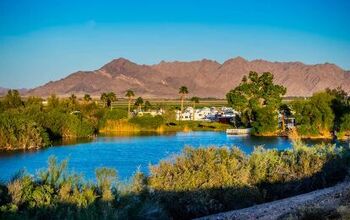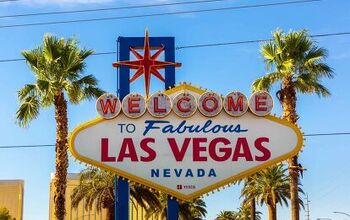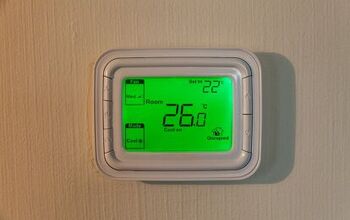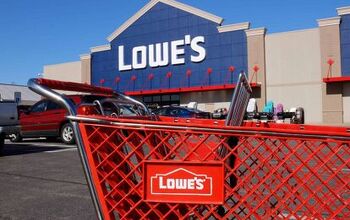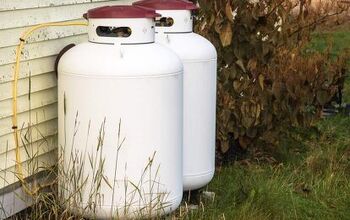Cost Of Living In Fairfax, Virginia (Taxes, Housing & More)

Fairfax, Virginia is a popular northern Virginia college town with a suburban feel, and residents report a high quality of life thanks to the nearby capital and all the supporting industries that go along with it.
Living in Fairfax, Virginia, is about 50 percent more costly than the average price of living in the United States. On a cost of living index where 100 is the average national cost of living, Fairfax earns a 152.0 rating. The primary contribution to this higher cost of living is the expensive home costs for people living in Fairfax.
Let’s take a closer look at the subsets of expenses that contribute to the elevated cost of living in Fairfax, Virginia.
Do You Need to Hire Movers?
Get free, zero-commitment quotes from pro contractors near you.

The Cost of Home Ownership in Fairfax
The median home sales price in Fairfax is $560,000 as of February 2021, which is actually a bit of a decrease from the same time last year. Homes average about $300 per square foot, meaning people are getting decent-sized homes for that cost. According to the United States Census Bureau, the average monthly mortgage payment in 2019 was $2,729 per month.
Housing draws a 238 on the cost of living index, meaning it costs over double the national average to purchase or rent a home in Fairfax.
As in other metro areas since the beginning of the pandemic, the demand for single-family homes is high in Fairfax, and home prices have increased as much as 18 percent since the same time last year.
The Cost of Property Taxes in Fairfax
Prospective home buyers should remember that the cost of property taxes is tacked onto your monthly mortgage payments by the lender, but Fairfax’s, and Virginia’s overall, property taxes are less expensive than the national average. Real estate property taxes are calculated on the assessed value of the home, which is usually not the list or sell price and is actually a percentage of the home’s value. Regardless, the more expensive the home, the higher the property taxes.
The national average property tax rate is 1.07 percent. The rate in Fairfax is 1.03 percent, which really adds up when you take into account that home values are double here than the national average. The average annual property tax payment in Fairfax County is $5,641.
The Cost of Renting a Home in Fairfax
The median rent is $1,881 per month. Renters will quickly find themselves above that median when looking for multi-bedroom dwellings. Some analysts expect the median rental price to decrease as the rental market is a bit oversaturated at this point.
Here is the average price for several common sizes:
| Bedrooms | Monthly Rent |
| Studio | $1,500 |
| 1 Bedroom | $2,020 |
| 2 Bedrooms | $2,550 |
| 3 Bedrooms | $3,100 |
| 4 Bedrooms | $2,950 |
In many markets, people rent because it is less expensive than homeownership, but in Fairfax, the average rent is about the same amount as the average monthly mortgage.
Utility Rates in Fairfax
Utilities actually come in a little below the national average at 91 on the cost of living index. That figure includes electricity, natural gas, and any other residential fuels.
Electricity Rates: The average residential electricity bill in Virginia is $124per month, which is above the national average of $107. In Fairfax, the residential electricity rate is $0.1104 per kilowatt and is not significantly above or below the average rate in Virginia.
Virginia rates 10th in the United States for energy consumption, no doubt due to the exceptionally humid summers and chilly winters.
Child Care Costs in Fairfax
The cost of child care is steep everywhere in America, and Fairfax is no exception. Fairfax’s child care rates on the cost of living index are 165.5, so above the national average but not as lofty as housing costs. Fairfax County reports childcare cost ranges as follows:
| Age | Home-Care Providers | Center-Based Care |
| Infants | $250 – $325 | $365 – $478 |
| Toddlers | $240 – $315 | $340 – $459 |
| Pre-School | $200 – $300 | $300 – $415 |
| Before-and-After School | $150 – $250 | $150 – $250 |
Grocery Costs in Fairfax
Groceries bills in Fairfax are more than the national average, but they are unlikely to bring the same pain as the daycare bill or mortgage payment. Groceries clock in at 114 on the index with 100 being the national average.
Here is a list of some grocery items and prices in Fairfax; use this as a starting place to determine whether your grocery bills will be more or less expensive in Fairfax than where you currently live.
| Item | Price |
| Milk – 1 gallon | $3.93 |
| Loaf of Bread – White – 1 pound | $2.95 |
| Rice – White – 1 pound | $1.53 |
| Eggs – 1 dozen | $2.20 |
| Cheese – 1 lb | $5.00 |
| Chicken Fillets – 1 lb | $5.00 |
| Tomatoes – 1 lb | $2.40 |
Costs of Entertainment and Recreation in Fairfax
Many people are drawn to Fairfax due to its proximity to Washington D.C. and the jobs available there. As such, Fairfax’s role is that of a bedroom community for the capital, which has everything from arts to fine dining to museums and live theater.
Fairfax itself has a long (for America) history, and exploring and learning that history can be a great source of recreation for residents.
| Activity | Price Range |
| Civil War Interpretive Center | Free |
| George T. Snyder Trail | Free |
While Fairfax is a mostly residential area without many activities, the northern Virginia area and Fairfax County in particular is heavy-laden with activities for outdoor enthusiasts, families, children, people interested in the arts, and more.
Education Costs in Fairfax
George Mason University is Fairfax’s sole postsecondary institution. It is a four-year public university and is the largest in Virginia. George Mason is an R-1 research facility that offers 78 undergraduate degrees, 94 master’s degrees, a law school, and 38 doctoral degrees. In-state undergraduate tuition is $12,564 per year, and out-of-state tuition is $36,024.
In the Washington, D.C. metro area, students can find many colleges and universities to meet their educational needs.
Just a few minutes from Fairfax is Northern Virginia Community College which provides traditional two-year degrees, several technology-focused specialized programs, and a nursing school.
George Washington University, Stratford University, Virginia Tech, and Washington University of Virginia are a handful of nearby universities.
Fairfax Compared to other Northern Virginia Suburbs
Generally speaking, many people considering a move to Fairfax are considering a move to the northern Virginia area. Proximity to Washington, D.C, the airport, and other amenities is important. When considering the cost of living in Fairfax, it may be most helpful to compare it to nearby suburbs to really get a sense of whether Fairfax’s costs of living is an outlier or similar to other cities in the area.
For example, nearby Alexandria ranks very similarly on the cost of living index at 150 compared to Fairfax’s 152. Most people will most acutely feel a high cost of living when it comes to housing because housing is such a big part of Americans’ budgets. Alexandria’s housing is 234 versus Fairfax’s 238 on the cost of living index.
Alternatively, Woodbridge is a few miles further from Washington, but the cost of living is much lower. Its overall cost of living is only 119, making it much closer to the national average. Housing is also much more in line with the national average at 138 on the cost of living index.
Related Questions
What do most people earn in Fairfax?
The per-person median income for people living in Fairfax is $56,231. The household median income is $124,831. About 6 percent of Fairfax residents live at or below federal poverty guidelines. Sixty-one percent of the workforce has a bachelor’s degree or higher. In comparison, the median household income for the state of Virginia is $72,577, demonstrating that residents in northern Virginia have opportunities unique to the area that provide higher-than-average incomes.
How far away is Washington, D.C.?
Twenty miles separate Fairfax and Washington, and commuters can drive or take the Metro for a 45-minute commute. Fairfax is considered a bedroom community for Washington, and many Fairfax residents commute to Washington.
Is Fairfax safe?
Fairfax has an average crime rate of 15 crimes per 1,000 residents.
What are the main industries in Fairfax?
People who live in Fairfax are most commonly employed in professional, scientific, and technical services; public administration; health care and social assistance; retail trade; and education. Several hotel and resort companies call Fairfax home, providing in-town employment for residents. Amazon’s massive second headquarters will be nearby, between Alexandria and Arlington, and it is likely that many Amazon employees will call Fairfax home in the future. Economists expect the addition of Amazon to the area to increase wages and lead to the creation of thousands of more jobs where workers are not directly employed by Amazon but work in a related field.
Do You Need to Hire Movers?
Get free, zero-commitment quotes from pro contractors near you.

Is Fairfax, Virginia right for you?
Fairfax is the poster-child of a suburban commuter city with access to Washington, D.C. and the northern Virginia area, and all the activities, amusements, and employment activities those places provide. While Fairfax residents will encounter higher-than-average housing prices, its overall cost of living is not terribly inflated compared to the national average, and high median incomes further even out costs.
Related Articles

Kirbee is a licensed attorney and real estate broker, but DIY projects of all kinds call to her. Kirbee loves being at home with her husband, daughter, and dog and investing her time and energy into projects to make their home a unique and comfortable place for all of them. Her favorite projects include gardening, building new items, and creating solutions to manage clutter.
More by Kirbee Anderson














